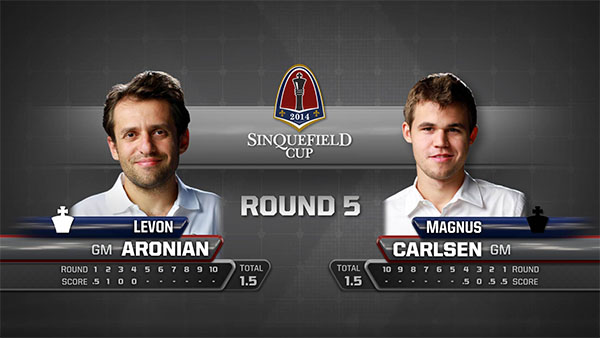The recently finished Sinquefield Cup is going to attract chess players' attention for a long time. Mostly, chess analysts will concentrate their efforts trying to explain the phenomenal result of Fabiano Caruana. You can read my version here.
It is very unusual to see a tournament where Magnus "the Magnificent" Carlsen is not the main media magnet.
Despite being in the Caruana's shadow the whole tournament, Carlsen still produced some good chess and came second. In the process, he demonstrated his trademark hypnotic skills. I
1f you are not sure what I am talking about, here is what GM Victor Korchnoi said about Magnus:
"I don't see that Carlsen has the chess ability and I can't understand at all how he achieves such incredible success. I can guess why, but it's got no direct relation to chess. In the chess world there are a few people with absolutely incredible hypnotic abilities. Not so long ago I wrote in one of my books that there were three chess players in history who could (or can) read thoughts of their opponents: Tal, Mecking and Carlsen. That's what, I think, explains the Norwegian phenomenon. He reads thoughts!"
Now look at the position from the game Aronian-Carlsen played in the Sinquefield Cup to see what Korchnoi was talking about.

Levon Aronian (2805) vs. Magnus Carlsen (2877)
Sinquefield Cup | Saint Louis USA | Round 5.2 | 31 Aug 2014 | ECO: A47 | 0-1
Here is Carlsen discussing the game with Chess.com:
Yes, the position on the diagram is slightly better for Black due to the superior pawn structure, but why give up a pawn? After the unnecessary pawn sac, White could probably still make a draw, but I don't see any reason to complicate your own defense by giving up a pawn. Carlsen duly won the game.
Here is another high profile example of Carlsen's hypnosis:
Viswanathan Anand (?) vs. Magnus Carlsen (?)
Anand-Carlsen World Championship | Chennai IND | Round 6 | 16 Nov 2013 | ECO: C65 |
0-1
0-1
Again, we see a game where a very strong chess player (the world champion actually!) gave up a pawn for no reason in the position where almost any other reasonable move was sufficient. And just like in the previous game, White could still hold a draw later in the game, but it is beyond the point.
It reminds me about my days in the famous Botvinnik-Kasparov school, when the Patriarch would say about a move like this: "Bolsheviks liked to create problems for themselves in order to successfully solve them later."
So how did Magnus do it? He didn't set traps for his opponents; instead it is his opponents found a weird way to make their own lives more complicated by giving away pawns for no reason!
Should we check Magnus' obligatory orange juice for a trace of "eye of newt and toe of frog, wool of bat and tongue of dog"?
Before we do it, let's open an interesting book "Practical Chess Psychology" by Amatzia Avni.
Pismeny vs. Liberzon
Israel | 1984 | 0-1
In the last two games you can notice identical placement of Black kings, queens and the king's side pawns. Moreover, in all three games a mysterious move of the black king preceded White's blunder. It was similar to a magician who snaps his fingers and the audience falls asleep. Black played Kf8 or Kg7 and White immediately gave away a pawn!
So, finally the secret of Magnus Carlsen is revealed! It is a move with his king at the right moment! Want more evidence? Here it is:
Teimour Radjabov (?) vs. Magnus Carlsen (?)
World Championship Candidates | London ENG | Round 13 | 31 Mar 2013 | ECO: E32 | 0-1
Even amateur chess players know that in the bishops of the same color endgames, you are not supposed to put your pawns on the squares of the same color as your bishop, so how could a super GM play 64. a4? and ultimately lose this pawn?
It is definitely the hypnosis and the king's move!
If you are not satisfied with the mounting evidence of Carlsen's blunder-inducing kings moves and insist on more materialistic explanation, here is what GM Liberzon wrote about his game that we just analyzed:
"I had not seen a path to victory, nor do I see one now; in such a state of mind, a chessplayer must strengthen his position, and pretend as if he has a plan leading to victory. Such an approach will intimidate his adversary and induce errors on his part."
This is exactly what Magnus Carlsen is doing! He is confident, energetic and ready to play for as long as it is necessary to break his opponent's will.
Or maybe it is still the magic king moves?

No comments:
Post a Comment